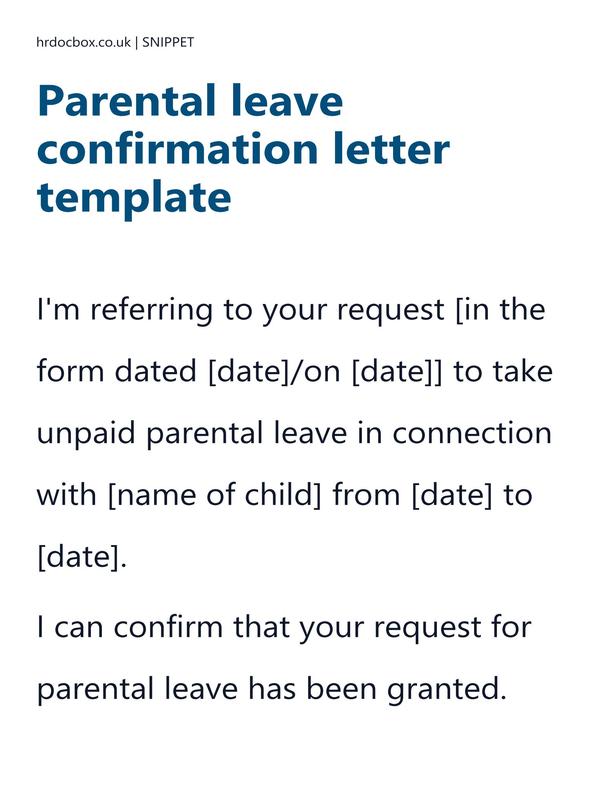Parental and family templates toolkit
Our Parental and Family Templates Toolkit streamlines support for employees, ensuring smooth transitions and work-life balance.
Our toolkit includes a range of templates that are designed to simplify the process of managing and supporting parental leave, save you time and effort, and ensure compliance with all relevant employment legislation. From creating parental leave policies and procedures to managing shared parental leave and handling parental leave requests, our templates cover all the necessary documents required to support employees who are parents.
- 37 Parental And Family templates.
- Includes all Parental And Family templates, plus 12 months' access with all updates to the Parental and family templates toolkit provided free of charge and notified to you.
- UK-specific accuracy.
- Instantly download templates as Word / PDF / plain text, or send by email.
- The Parental and family templates toolkit will SAVE you up to 21 hours drafting & research. Save cost. Reduce risk.
Parental and family
The purpose of parental, maternity, paternity, and adoption templates is to provide employees and employers with clear and consistent information about their rights and obligations under employment law when it comes to caring for a new child.
These templates can help ensure that both parties are aware of their responsibilities and entitlements and can help facilitate a smoother transition to a new family dynamic.
By providing clear communication about entitlements to parental leave, flexible working, and other support options, employers can help employees balance their work and family responsibilities, reduce stress and anxiety, and maintain their job satisfaction and productivity. Additionally, the use of these templates can help ensure compliance with relevant employment legislation and best practices.
Parental and family templates are essential for managing a low-risk, compliant Parental and family process.
Compliance
Compliance
-
Employees have a legal right to take time off work for various family-related reasons, including maternity leave, paternity leave, adoption leave, shared parental leave, and time off for dependants.
-
Employers must ensure that they have clear policies and procedures in place for managing family-related leave, and that these are communicated effectively to employees.
-
Employers must comply with statutory leave entitlements, such as maternity and paternity leave, and should ensure that they do not discriminate against employees who exercise their right to take leave.
-
Employers must ensure that they provide a safe and healthy working environment for pregnant employees and new mothers, and that they carry out risk assessments and make any necessary adjustments to ensure their safety.
-
Employers may be required to provide reasonable adjustments to employees who have caring responsibilities for disabled dependants, in order to ensure that they are able to balance their work and caring responsibilities.
-
Employers should ensure that any requests for family-related leave are dealt with promptly and fairly, and that employees are informed of the outcome in writing.
-
Employers should ensure that employees are aware of their rights and entitlements with regard to family-related leave, and that any concerns or queries are addressed promptly and sensitively.
It is important for employers to have clear policies and procedures in place for managing family-related leave, to comply with UK employment law, and to support their employees' wellbeing and work-life balance.
Key Parental And Family Case Law
Key Parental And Family Case Law
Navigating Parental and family processes correctly is crucial to help you avoid any problems (which can be costly in terms of time, money and reputation).
Recent UK case law has highlighted key aspects of good Parental and family management. Knowing how courts have handled claims can help you assess whether your proposed actions are likely to be seen as reasonable.
Here are some notable rulings and their implications:
-
Ali v. Capita Customer Management Ltd (2018):
Facts: Mr. Ali's employer offered women on maternity leave 14 weeks of full pay but provided only two weeks of full pay for employees taking shared parental leave. Mr. Ali claimed sex discrimination, arguing that he should receive the same pay during shared parental leave as women on maternity leave.
Outcome: The Employment Tribunal initially found in favour of Mr. Ali, but this decision was overturned by the Employment Appeal Tribunal (EAT). The EAT ruled that enhancing maternity pay without enhancing shared parental pay is not discriminatory.
Key takeaway: The decision was based on the premise that maternity leave serves purposes beyond childcare, such as recovery from childbirth, which shared parental leave does not.
-
Hextall v. Chief Constable of Leicestershire Police (2019):
Facts: Mr. Hextall, a police officer, took shared parental leave and received statutory shared parental pay. He claimed sex discrimination, arguing that he should receive the same full pay during shared parental leave as his female colleagues on maternity leave.
Outcome: The Court of Appeal ruled against Mr. Hextall, holding that there was no direct or indirect discrimination. The court determined that men on shared parental leave cannot compare themselves to women on maternity leave for the purposes of equal pay claims because maternity leave has different objectives, including recovery from childbirth.
-
Roddis v. Sheffield Hallam University (2020):
Facts: Mr. Roddis, a fixed-term employee, claimed that he was treated less favourably than a permanent employee regarding his rights to parental leave and other benefits.
Outcome: The Employment Appeal Tribunal found in favour of Mr. Roddis, ruling that fixed-term employees should not be treated less favourably than permanent employees regarding parental leave rights unless there is a good reason.
Key takeaway: This case reinforced that fixed-term employees should have equal access to parental leave benefits.
-
Price v. Powys County Council (2021):
Facts: Mrs. Price was refused the opportunity to take parental leave during school holidays, which she argued was a breach of her statutory rights.
Outcome: The Employment Tribunal found in favour of Mrs. Price, ruling that the employer had not provided a valid reason for refusing the parental leave request.
Key takeaway: The case highlighted the importance of employers giving proper consideration to parental leave requests and ensuring they comply with statutory rights.
-
Snell v. Network Rail Infrastructure Ltd (2022):
Facts: Mr. Snell, an employee of Network Rail, claimed that he faced detrimental treatment after requesting to take parental leave. He alleged that his career progression was hindered due to his leave.
Outcome: The Employment Tribunal ruled in favour of Mr. Snell, finding that the employer had treated him detrimentally in response to his parental leave request.
Key takeaway: The case underscored that employers must not treat employees unfavourably because of their use of parental leave rights.
Instantly unlock with a purchase.
Instantly unlock with a purchase.
Parental And Family workflow
Parental And Family workflow
Here we show you which resources to use to effectively support a pregnant employee, taking into account the different decisions and directions that are likely / possible.
Following this flowchart will ensure that you factor in all eventualities, follow legal / code of conduct or best practice processes, communicate effectively, and reduce the risk of things going wrong.
Frequently Asked Questions about Parental And Family templates
Frequently Asked Questions about Parental And Family templates
-
Can small businesses use these Parental and family templates?
Yes. The Parental and family templates in this toolkit are designed to be flexible and suitable for organisations of all sizes, including small businesses and charities. They follow UK employment law best practice, so even if you don't have an in-house HR team, you can confidently manage Parental and family processes and issues.
-
Are these Parental and family templates up to date for UK law in 2026?
Absolutely. All templates are drafted with the latest ACAS guidance and UK employment legislation in mind. We review and update them regularly, so you can be confident they remain compliant.
-
What types of Parental and family letters and documents are included?
Every toolkit includes a complete set of editable templates, supporting documents, and manager guidance designed to save time and ensure compliance.
-
How will this help me as an HR manager or business owner?
Purchasing the toolkit saves you hours of drafting time and reduces the risk of legal mistakes. Instead of starting from scratch, you'll have clear, professional templates that you can adapt to your business.
-
Do I get instant access to the templates?
Yes. Once purchased, you'll be able to download the Parental and family toolkit instantly. The templates are provided in editable Word or Excel format so you can customise them easily, and PDF format for easy sharing.
-
Can I preview a sample Parental and family template before buying?
We provide free examples of our templates here. This gives you a sense of the quality and layout before you commit to purchasing the full toolkit.
-
What if I need a full HR toolkit, not just Parental and family templates?
If you're looking for broader support, we also offer library bundles that include Parental and family templates along with absence, grievance, and other HR policies. These may be more cost-effective if you need a complete HR library.
-
Why should I use these templates, and not AI to generate them?
The risk of using free AI-generated templates 'without review' includes your legal exposure, missing context, and no awareness of the wider process. Purchasing from us mitigates that risk.


